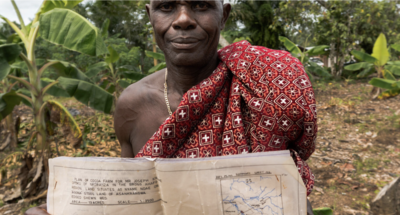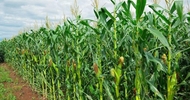World Bank uses climate crisis as cover for land-grabbing, Oakland Institute says
by Bobby Bascomb
The World Bank promotes expansion of private land ownership and title to improve efficient land use and recently announced billions of dollars to support these policies, claiming it will also facilitate carbon projects including offsets and afforestation. But analysis by the Oakland Institute (OI) argues those investments overwhelmingly benefit big business at the expense of local and Indigenous communities.
“The Bank is hijacking the climate crisis to pursue an agenda that is not about climate but about catering for the financial and corporate interests fueling the crisis,” Frédéric Mousseau, policy director at OI, told Mongabay by email.
In the Philippines, for example, land reform in the 1980s created agricultural cooperatives allowing farmers to collectively manage their resources. In 2020, the World Bank began promoting land title for farmers, allowing them to use their land as collateral to access credit. Instead, many farmers sold their land to corporations or wealthy families, sometimes “persuaded” to do so by home visits from soldiers, the report says.
The bank’s push to overhaul land tenure is particularly pronounced in Africa, where large tracts of land are collectively owned by communities. The report details “an explicit agenda to drive African farmers out of agriculture,” citing a 2024 World Bank report that promotes private ownership to address climate change and economic development. OI argues such reforms will displace smallholders and pave the way for land consolidation by agribusiness — as was the case in the Philippines.
“Whereas the Bank’s push for large-scale agribusiness is global, the African continent is its central target,” the report states.
The report also challenges the World Bank’s assertion that private tenure will ensure Indigenous and local communities benefit from the green energy mineral mining boom. OI questions the bank’s assumption that people will consent to mining on their newly titled land. As Mongabay has reported from Brazil, Bolivia, Chile, Argentina and Zimbabwe, mining often results in environmental and social damage.
OI also questions the World Bank’s support for carbon credit projects. Mongabay investigations from Cambodia, Suriname, the Republic of Congo and Brazil found that such projects often result in land-grabbing and human rights abuses, despite a growing shift for community-led carbon projects.
“We used to have land grabs. Now we are having carbon grabs,” Akinwumi Adesina, president of the African Development Bank told the Financial Times.
Mongabay reached out to the World Bank but it did not reply.
Michel Pimbert, of Coventry University in the U.K., cited in the OI study, wrote to Mongabay that the World Bank initiatives “will push millions of people out of the countryside and undercut local livelihoods and food security.”
Mousseau said the answer to the climate crisis and support for the Global South lies in taxing global wealth to “address the chronic underfunding of climate action” and at the same time “constrain the ability of corporations to pursue activities that contribute to more GHG emissions.”














